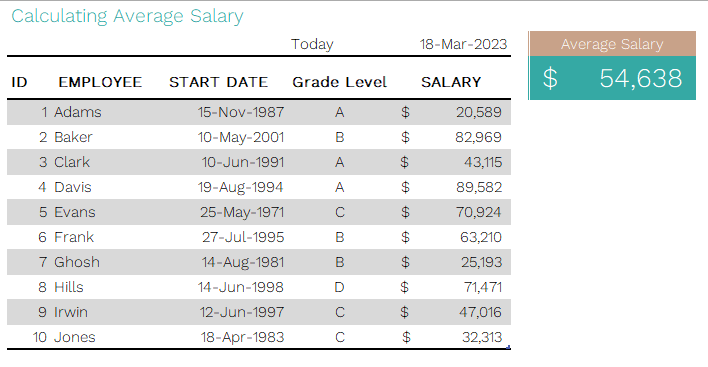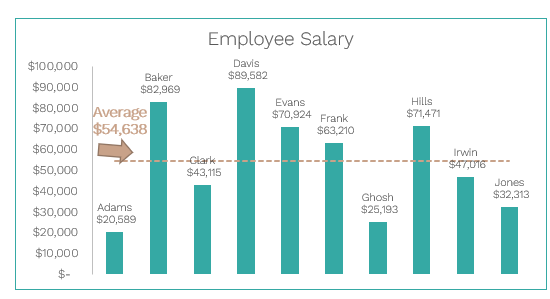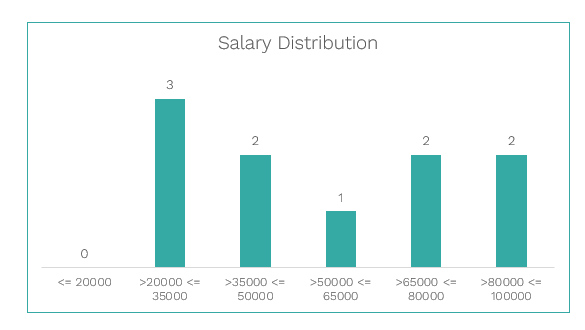Average Annual Salary
Average Annual Salary - HR Metric - calculation
What (Definition)
Average annual Salary is the average of actual salaries of current employees. This is based on the annual salary agreed with the employee and not the salary paid to employee so far.
Why (Benefits)
Average Salary is an indicator of how the employees’ salaries are distributed. It is usually helpful to know average salary within a specific salary grade or pay grade. Jobs are usually assigned a specific salary grade and each grade has a minimum, midpoint and maximum salaries as guidelines. This average salary can be compared to the midpoint salary set for the specific grade to ensure that the policy guidelines are followed.
How (Calculation)
Formula: Average of Actual Annual Salaries of Employees
If we have a list of employees and their salaries, we can calculate the average.
Average Annual Salary Calculation using example data
Average Annual Salary Calculation
In this example dataset, the average salary is $54,638.
As mentioned earlier, the metric is useful when segmented by job grade. If the job grades are A, B, C and D, we can calculate the average salary for each grade.
Let’s look at this chart below.
Average Salary by Job grade
While using median or average metrics, it is recommended that we also see the frequency distribution.
This is where we create groups or buckets of salaries and calculate the frequency.
Salary Distribution
In this chart above, we can see the number of employees in each salary band/bucket. 3 employees have salaries between 20001 and 35000. This analysis allows us to see which salary buckets the concentration of employees is and will reveal outliers if any.
Related HR Metrics
Now, it’s your turn
Do you calculate average salary in your organization? What method do you use? Please share your thoughts. I look forward to learning from you.







What is total annual salary? Why should we measure total annual salary? How to calculate total annual salary?